Summary
The focus of the QoE4VR project is the analysis of user Quality of Experience (QoE) when using Virtual Reality (VR) applications in different network conditions. The objective is to find out the correlation between the level of user QoE (i.e. his or hers subjective perception of quality) and values of measurable network parameters such as latency, packet loss, video frame rate etc.
A bit more detail
In the last 10 or so years the scientific community has invested considerable efforts in disclosing the dependencies between the objective and the subjective parameters that can have an impact on user perception of service quality. The new concept emerged – QoE – highlighting the importance of a user and his or hers opinion as well as the importance of the environment where the QoE evaluation takes place. With this new QoE concept, the research community took a step forward, leaving behind the more “classic” approaches to service quality evaluation (when the main focus was on the network parameters, i.e., a service performance targets).
Since the QoE is a relatively new concept, investigating user QoE for VR applications is currently one of the most vivid research fields. Therefore, we are ready to tackle this issue and try to correlate between a user perception and network performances. Our plan is to acquire necessary test equipment (namely, high-performance computer and VR glasses), design the experiment (prepare the test material and test environment), conduct the subjective evaluation of quality for VR applications, analyze and publish the results.
The plan is to find out how different VR applications, such as video streaming (e.g. high resolution 360° video) or online gaming, perform under ever changing network conditions. The specific area of interest is the impact of network latency and packet loss on the application performances as seen from the perspective of our test subjects.
For the test environment, we will recreate the “living room environment” at our laboratory. The test subjects will enter the room and use different applications under different network conditions. Later, the interview will be conducted to find out the subjective perception of the quality.
Funding
The project is funded with 38,000.00 HKN by the University of Zagreb under Short term financial support for researchers program.

